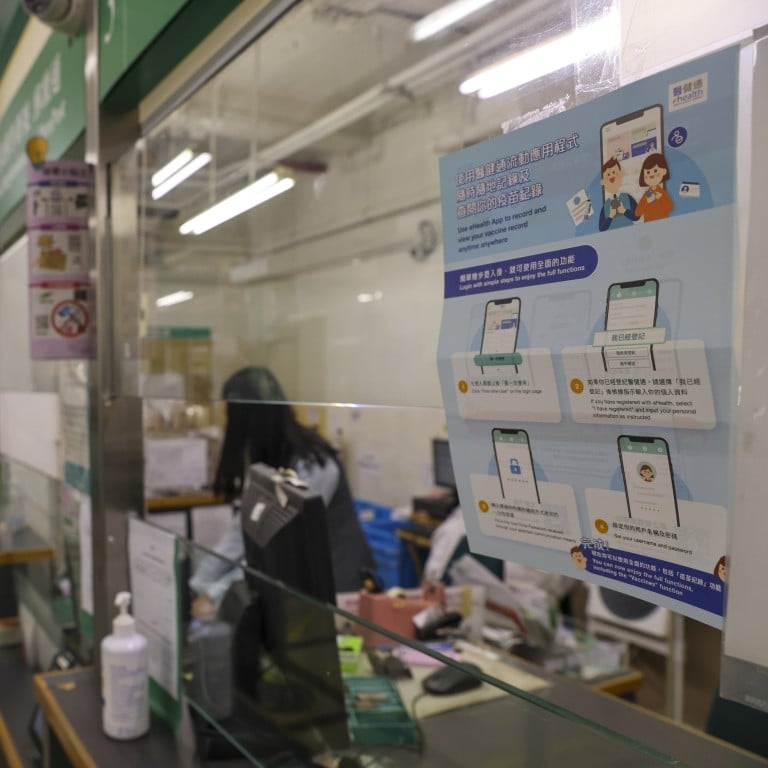
Private eHealth push the right medicine for Hong Kong
- Extension of electronic health record platform from Hong Kong’s public medical service providers will not only improve efficiency but also expand access to care
A push to expand the use of the electronic health record platform is a welcome move for the city. Public and private medical service providers should do what they can to boost cooperation to ensure the broad, yet secure, sharing of data to lower costs, improve efficiency and expand access to care. Authorities plan to link more than half of private medical service providers to the system within the year. Deputy Secretary for Health Sam Hui Chark-shum said it would counter the lack of records of patients, who had gone private, in the “eHealth” system, which was rolled out over eight years ago.
Designed to allow public and private healthcare providers to view and share electronic records with patients’ permission, the app was used by many during the pandemic as a convenient place to store Covid-19 vaccination records. There is now a five-year plan to upgrade eHealth to “eHealth+” at a cost of nearly HK$1.4 billion.
Healthcare systems around the world are going digital not only to save time and money, but also because data can help towards achieving goals such as improving primary healthcare policies or supporting medical research. Hong Kong also hopes to synchronise eHealth with systems used at hospitals and dental clinics in the Greater Bay Area, a development zone integrating Hong Kong and Macau with nine mainland cities.
Hong Kong health record plan in line for revamp to boost private sector data sharing
Official figures reveal that although private health practitioners account for more than 60 per cent of views of patients’ records, their data contribution rate accounts for the “extremely low” rate of less than 1 per cent.
Hui said private healthcare providers either failed to see a need to upload records or were held back by software issues that prevented them from sharing information. More than 70 per cent of the 6 million eHealth users have also not authorised private medical services to access data.
Authorities plan to simplify the consent process, but they must also clearly communicate with the public and providers about the benefits of sharing data. Privacy concerns are understandable. But with proper cybersecurity, the move may swiftly improve the outlook for the healthcare system.

